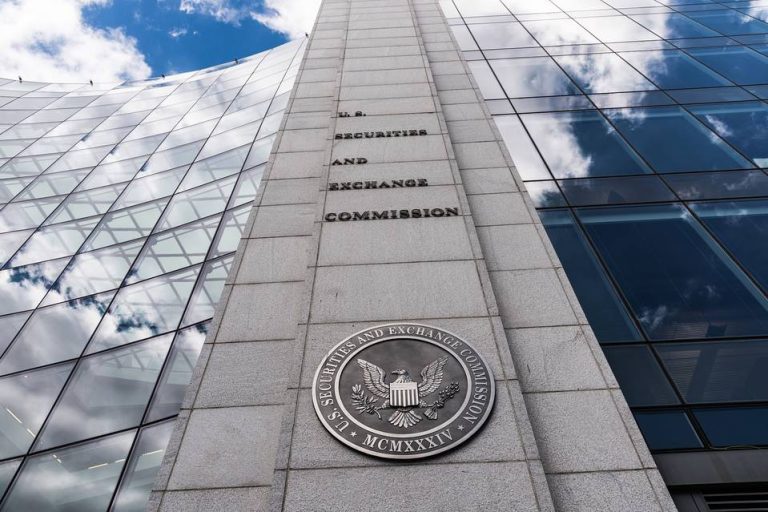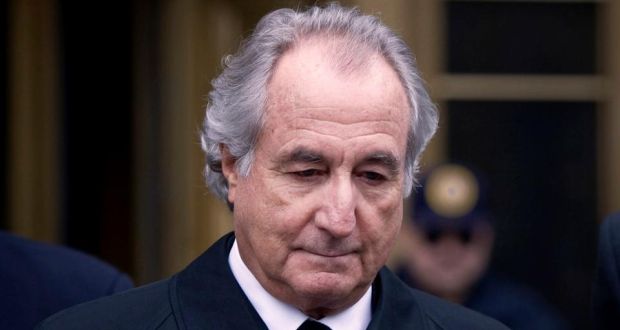Alexandria Trio Sentenced in Sophisticated Multi-Million Dollar Medicare DME Fraud Ring Involving International Money Laundering and Illicit Patient Lead Generation
Justice Served in Virginia as Masterminds of $13.5M Medicare DME Fraud Scheme Face Prison Time
In a significant step towards accountability for egregious healthcare fraud, three individuals from Vienna, Virginia, have been sentenced to prison for their pivotal roles in a complex, multi-million-dollar scheme that defrauded the Medicare program through the illicit billing of durable medical equipment (DME). The case, adjudicated in Alexandria, Virginia, saw Jeremie Vargas Ramirez, the de facto owner of the fraudulent enterprise; Jordana Lee Arpa, who served as its figurehead CEO; and Dennis William Karnes, a consultant who facilitated key aspects of the fraud, receive sentences for their participation in the operations of Kynetic Medical Group, which conducted business as NOVA DME.
The core of their criminal enterprise involved establishing NOVA DME as a purported supplier of durable medical equipment and then systematically billing Medicare for items that were often medically unnecessary, unwanted by beneficiaries, or procured through illicit means. The financial scale of this deception was substantial: NOVA DME submitted claims to Medicare totaling approximately $13,526,920 and, as a result, received payments amounting to roughly $7,610,462. From these ill-gotten gains, Ramirez, Arpa, and the corporate entity NOVA DME collectively pocketed at least $2,256,787. Dennis William Karnes, for his part in the scheme, personally profited by at least $888,500.
This elaborate fraud was not a short-lived venture. It was conceived around November 2018 with the creation of NOVA DME and continued its fraudulent billing practices through December 2023. The complexity of the operation extended far beyond simple overbilling. It was characterized by deliberate acts of concealment, the submission of false statements to federal authorities, the procurement of patient “leads” through questionable international channels, and a sophisticated system for laundering the proceeds of the fraud, notably through the use of a shell company. The human cost of this scheme was also considerable, with court documents revealing that hundreds of Medicare beneficiaries were targeted, many of whom received medical equipment they neither needed nor had requested, causing distress and confusion. This case underscores that Medicare fraud can transcend administrative malfeasance, evolving into calculated criminal enterprises with multiple sophisticated components, including international dimensions and complex financial maneuvers designed to obscure illegal profits. The involvement of multiple individuals, each with distinct and specialized roles—Ramirez as the operational head, Arpa as the public-facing, ostensibly legitimate CEO, and Karnes as the industry expert and facilitator—highlights the organized and structured nature often found in complex healthcare fraud operations. Such division of labor is characteristic of more extensive criminal efforts, allowing for specialization and potentially complicating investigations by obscuring the full scope of the operation from any single participant.
Unmasking the Deception: The Genesis and Fraudulent Operations of NOVA DME
The foundation for this multi-million-dollar fraud was laid in November 2018, when Jeremie Vargas Ramirez, Jordana Lee Arpa, and several other business partners agreed to establish Kynetic Medical Group, which would operate under the name NOVA DME. Ramirez was identified in court documents as the de facto owner, personally overseeing the company’s day-to-day business operations. His responsibilities encompassed critical areas such as business development, advertising, marketing, and, crucially, the billing processes that would later be used to defraud Medicare.
A key element of their strategy from the outset was deception regarding the company’s true leadership. Ramirez and Arpa agreed that Arpa would be named as President and CEO of NOVA DME. This arrangement was not for legitimate business structuring but was specifically designed to conceal from Medicare that Ramirez was, in fact, NOVA DME’s true owner and operator. This deliberate obfuscation suggests an early intent to circumvent regulatory scrutiny, possibly because Ramirez himself might not have passed the vetting process for Medicare provider enrollment due to prior history or other disqualifying factors—a common motivation in schemes employing figurehead executives. The use of a figurehead demonstrates a calculated understanding of potential vulnerabilities in the provider enrollment system, where the verification of true beneficial ownership might be exploited.
NOVA DME successfully obtained approval to operate as a Medicare provider in June 2021. This approval was predicated on false statements made by Arpa. Significantly, as part of the enrollment process, Arpa, acting on behalf of NOVA DME, formally acknowledged Medicare’s strict prohibition on the direct solicitation of beneficiaries. This acknowledgment stands in stark contrast to the company’s subsequent operational model, which relied heavily on generating “leads” for beneficiaries, many of whom did not want or need the equipment. Arpa’s false statements were not minor administrative errors; they were instrumental in facilitating the entire fraud scheme. By misrepresenting the company’s structure and intentions, she enabled NOVA DME to gain access to Medicare funds under thoroughly false pretenses. The complexity of DME billing, with its own unique rules, regulations, and frequent policy updates, underscores the importance of truthful and accurate information during the enrollment process. NOVA DME’s actions directly contravened these foundational principles. Medicare fraud is defined by such knowing submission of false information to the government to receive payments , and the actions of Arpa and Ramirez fit this definition precisely. The tactic of using false documentation to gain Medicare approval is a recognized method in DME fraud.
The act of acknowledging Medicare’s rules, such as the ban on direct solicitation, while concurrently planning and executing a business model that systematically violated those rules, reveals a profound disregard for the regulatory framework and the welfare of patients. This cynical approach prioritized illicit profit over ethical conduct and patient needs from the very inception of their Medicare participation. Arpa’s false statements were a direct and necessary precursor to the subsequent large-scale billing fraud; without this fraudulently obtained approval, the scheme as described could not have been executed.
The “Lead” Machine: Exploiting Vulnerable Beneficiaries Through Illicit International Networks
To accelerate NOVA DME’s profitability, Jeremie Vargas Ramirez enlisted the services of Dennis William Karnes in early 2021. Karnes brought with him a wealth of experience in the DME industry, having worked in the sector since at least 2000 and even having taught classes on wheelchair sales and billing. Ramirez specifically tasked Karnes with procuring DME “leads”—lists of insured customers who purportedly needed and had been prescribed durable medical equipment.
Karnes turned to international sources for these leads, engaging with co-conspirators based in foreign countries, notably Mexico and Russia. However, a significant portion of these leads were deeply flawed. They pertained to Medicare beneficiaries who either did not need the DME, had not requested it, or were unaware of NOVA DME altogether. The standard industry practice of thoroughly vetting leads to ensure their legitimacy before billing Medicare or other insurers was deliberately and knowingly bypassed by both Karnes and Ramirez. Their awareness of the fraudulent nature of many leads was continuously reinforced by the high frequency of complaints from beneficiaries and the volume of returned equipment. Despite this knowledge, NOVA DME proceeded to submit claims for reimbursement to Medicare based on these unverified and often bogus leads. This practice aligns with common DME fraud schemes that involve telemarketers illicitly obtaining beneficiary information, which is then used by DME companies to bill Medicare for unnecessary equipment, often involving kickbacks to the lead generators. While the provided information does not explicitly detail kickbacks from NOVA DME to its foreign lead sources, the procurement of such leads is a core component of activities that often violate the Anti-Kickback Statute (AKS), which prohibits payments to induce referrals or generate business for federal healthcare programs. The generation of these “leads” was, in essence, the generation of fraudulent business.
Karnes’s role extended beyond mere lead procurement; he also acted as a “health care consultant” to Ramirez and NOVA DME. In this capacity, even when Medicare initially denied claims due to their dubious nature, Karnes often took steps to alter and resubmit these claims in an attempt to secure approval. This action of falsifying documentation is a common tactic in DME fraud. His dual role demonstrates how individuals with legitimate industry knowledge can become critical enablers of sophisticated criminal schemes, effectively weaponizing their expertise for illicit gain. His deep understanding of DME billing, which could have been applied ethically, was instead used to maximize profits through fraudulent activities.
The international sourcing of these “leads” from countries like Mexico and Russia points to an alarming trend: the globalization of healthcare fraud infrastructure. Criminal enterprises can now readily tap into international networks to obtain the raw materials for their schemes, such as compromised patient data. This creates significant jurisdictional challenges for law enforcement agencies and suggests that purely domestic efforts may be insufficient to combat such widespread fraud. The availability of these fraudulent leads directly fueled NOVA DME’s capacity to submit a high volume of false claims to Medicare. Without this steady supply of beneficiary data, however flawed, the scale of the billing fraud perpetrated by NOVA DME would likely have been substantially constrained. This blatant disregard for vetting leads, despite clear evidence of their fraudulent nature, underscores a profit-at-all-costs mentality that directly victimized beneficiaries—subjecting them to unwanted medical equipment, potential identity theft, and considerable distress—while simultaneously defrauding the American taxpayer. This erosion of trust in the DME supply system is a significant consequence of such schemes.
The Russian Connection and Laundering Illicit Millions: The Sharp Ventures Deception
The international entanglements of NOVA DME deepened around February 2022 when Dennis William Karnes introduced Jeremie Vargas Ramirez to a co-conspirator based in Russia. This Russian individual reportedly owned and controlled multiple DME companies operating throughout the United States. Critically, Karnes was aware that many of this Russian owner’s U.S.-based companies had been shut down, some due to suspicions of billing fraud. This knowledge indicated a persistent pattern of criminal activity associated with this new partner, yet Ramirez and Karnes proceeded with the engagement, suggesting either a high tolerance for risk or a strong belief in their ability to evade detection with their new operational structure.
Following this introduction, the Russian-based co-conspirator and an associate effectively took over the Medicare billing operations for NOVA DME, an arrangement made with Ramirez’s permission. Karnes, leveraging his status as a U.S.-based individual, was assigned responsibility for transferring money on behalf of these Russian-controlled companies. The rationale was that financial transactions conducted by a U.S. citizen would likely arouse less suspicion from financial institutions and regulatory bodies than those initiated by a Russian-based businessperson, particularly given the geopolitical climate and increased scrutiny of Russian financial activities. This is a specific money laundering tactic, exploiting individuals perceived as less likely to trigger immediate red flags.
The mechanism for laundering the illicit proceeds was a shell company named Sharp Ventures, LLC. Medicare payments for claims submitted by NOVA DME were initially sent to NOVA DME’s accounts via check or direct deposit. Subsequently, the Russian-based co-conspirators would direct Karnes on the specific amounts of money to collect from Ramirez, ostensibly as payment for the leads they provided, and instruct him on where to send these funds. Following these directives, Karnes instructed Ramirez to make regular payments, typically ranging from $10,000 to $50,000 on a roughly weekly basis, to the Russian-based owner. These payments were channeled through Sharp Ventures, LLC. This shell company served as the conduit for laundering at least $4,060,000 in Medicare fraud proceeds, facilitating their transfer to Russia and other locations outside the United States.
The use of Sharp Ventures, LLC, perfectly illustrates how shell companies are exploited in financial crime. These entities, often existing only on paper with no real operations or employees, are ideal for obscuring the true origin and destination of funds. Payments made to Sharp Ventures for “leads”—many of which were themselves fraudulent—created a veneer of legitimate business transactions, effectively “cleaning” the dirty money derived from Medicare fraud. This practice of channeling illicit funds through shell companies, sometimes across multiple jurisdictions in a process known as layering, is a hallmark of sophisticated money laundering operations. International healthcare fraud schemes frequently employ such tactics; for instance, one Europol-coordinated operation dismantled a network that laundered proceeds from hearing aid fraud through numerous shell companies across Europe. Similarly, a U.S. case saw a nurse practitioner convicted for laundering over $40 million from healthcare fraud to nearly 200 bank accounts in India, demonstrating the scale such international laundering can reach. The Sharp Ventures operation, while perhaps less complex than moving funds through hundreds of accounts, employed the same fundamental tactic of using a corporate veil to move and conceal criminal profits internationally.
The shell company, Sharp Ventures, LLC, was therefore the direct instrument enabling the transfer and laundering of millions of dollars in fraudulently obtained Medicare funds out of the U.S. to the Russian co-conspirator. Without such a laundering vehicle, extracting and repatriating these substantial profits internationally would have been significantly more challenging and fraught with risk for the perpetrators. This case vividly demonstrates the critical and often underestimated link between healthcare fraud and international money laundering, where the proceeds of defrauding U.S. taxpayers are siphoned off to foreign destinations, necessitating complex financial investigations and robust international cooperation to trace and recover.
The Human Toll: Hundreds of Medicare Beneficiaries Victimized by NOVA DME’s Greed
The architects of the NOVA DME scheme exhibited a callous disregard for the individuals whose Medicare benefits they exploited. Court documents reveal that DME recipients and their caretakers frequently lodged direct complaints with Jeremie Vargas Ramirez, stating unequivocally that they had received medical equipment they neither requested nor medically needed. Ramirez, in turn, often relayed these reports of returned DME and beneficiary complaints to Dennis William Karnes. This internal communication confirms their awareness of the problems being caused, yet the fraudulent billing continued unabated, suggesting these complaints were viewed merely as an operational nuisance rather than a serious issue demanding corrective action.
The scale of the victimization was extensive. Between January 2022 and December 2023 alone, Medicare itself received at least 508 complaints originating from no fewer than 491 distinct Medicare beneficiaries, all pertaining to NOVA DME. The nature of these complaints painted a clear picture of the fraud:
- Beneficiaries reported that they had not received the services for which NOVA DME billed Medicare.
- Many stated they had no knowledge of NOVA DME as a provider.
- Others had returned the unwanted or unnecessary items but never received refunds, leaving their Medicare accounts improperly charged.
- Alarmingly, some complaints included suspicions of identity theft, a severe consequence of such schemes.
This direct impact on beneficiaries underscores that Medicare fraud is far from a victimless crime. It inflicts tangible harm on vulnerable individuals, primarily seniors, causing them significant time, stress, and potential financial liabilities. The annual cost of healthcare fraud is staggering, estimated at over $100 billion, translating to more than $300 for every American. Medicare-specific fraud alone is estimated to cost taxpayers $60 billion each year. Scammers often use stolen Medicare numbers to commit medical identity theft, billing for services or items never actually provided or substituting cheaper items while billing for more expensive ones. This aligns precisely with the experiences of those who complained about NOVA DME. Such fraud can also have dire consequences for legitimate healthcare needs; for example, if a beneficiary is fraudulently enrolled in hospice, Medicare may deny coverage for other critical, life-saving treatments.
The complaints of “suspected identity theft” are particularly grave. Beyond the financial loss to the Medicare system, the unauthorized acquisition and misuse of beneficiaries’ personal and medical information—including Medicare numbers and diagnostic details—can lead to long-lasting and devastating consequences. These can include compromised credit ratings, difficulty in obtaining insurance, and even obstacles in accessing future legitimate healthcare services. This elevates the impact of the crime from purely financial to a significant personal security threat for the victims. The sheer volume of complaints against NOVA DME, both directly to the company and to Medicare, points to a blatant operational recklessness, likely driven by the high-volume, low-scrutiny nature of their fraudulent lead generation and billing practices. The actions of NOVA DME not only defrauded taxpayers but also eroded the trust of beneficiaries in a healthcare system designed to protect them.
To assist beneficiaries in recognizing and avoiding such schemes, the following red flags are critical:
Table 1: Red Flags for Medicare Beneficiaries: Protecting Yourself from DME Fraud
| Red Flag | Description | Action to Take |
|---|---|---|
| Unsolicited Equipment | You receive medical equipment or supplies you didn’t order or that your doctor didn’t prescribe. | Do not accept the delivery. Contact your doctor and report it to 1-800-MEDICARE. |
| Billing for Non-Received Items/Services | Your Medicare Summary Notice (MSN) or Explanation of Benefits (EOB) shows charges for items or services you never received. | Review your MSN/EOB carefully. Contact your provider and report discrepancies to 1-800-MEDICARE. |
| Unfamiliar Supplier Charges | You see charges on your MSN/EOB from a DME supplier you don’t recognize or have never dealt with. | Investigate the charge. If suspicious, report it to 1-800-MEDICARE. |
| “Free” Offers for Medicare Number | You receive unsolicited calls, emails, or visits offering “free” medical equipment or services in exchange for your Medicare number. | Never give your Medicare number to unsolicited callers. Medicare will not contact you for this information. Report such attempts. |
| Refusal of Returns | A DME company refuses to accept the return of unwanted or medically unnecessary equipment they sent you. | Document the refusal and report the company to 1-800-MEDICARE and your State Attorney General. |
| Pressure to Accept Equipment | You feel pressured by a supplier or marketer to accept equipment you don’t believe you need or want. | Refuse the equipment. Discuss any true medical needs only with your trusted doctor. |
| Identity Theft Concerns | You suspect your Medicare number or personal information has been compromised or used fraudulently. | Report immediately to 1-800-MEDICARE and the Federal Trade Commission (FTC) for identity theft. |
The complaints from these hundreds of beneficiaries likely played a crucial role in initiating and supporting the investigation that ultimately dismantled the NOVA DME fraud ring, highlighting the vital role of public vigilance in combating such crimes.
Accountability and Justice: Sentences, Restitution, and the Price of Deception
The investigation and subsequent prosecution culminated in guilty pleas and sentencing for the three key figures behind the NOVA DME scheme. Their accountability serves as a stark reminder of the legal consequences associated with defrauding federal healthcare programs.
- Jeremie Vargas Ramirez, 50, of Vienna, identified as the de facto owner and day-to-day operator of NOVA DME, pleaded guilty on January 31 to conspiracy to commit healthcare fraud. On April 18, he was sentenced to two years in prison. In addition to imprisonment, Ramirez was ordered to pay restitution amounting to $2,256,787.
- Dennis William Karnes, 56, of Lake Elsinore, California, who acted as a consultant, facilitated the procurement of fraudulent leads, and assisted in money laundering, also pleaded guilty on January 31 to conspiracy to commit healthcare fraud. On May 2, he received a sentence of two years in prison and was likewise ordered to pay restitution of $2,256,787.
- Jordana Lee Arpa, 42, of Vienna, who served as the figurehead President and CEO of NOVA DME to conceal Ramirez’s ownership and made false statements to Medicare, pleaded guilty on February 7 to conspiracy to making false statements relating to healthcare matters. She was sentenced on May 23, 2025 (per the original press release update date), to six months in prison and was also ordered to pay restitution of $2,256,787.
The prosecution of this case was led by the U.S. Attorney’s Office for the Eastern District of Virginia, with Erik S. Siebert, U.S. Attorney, and Assistant U.S. Attorney Zachary H. Ray spearheading the government’s efforts. The successful outcome was the result of diligent investigative work by the Federal Bureau of Investigation (FBI) Washington Field Office’s Criminal and Cyber Division, under the direction of Special Agent in Charge Emily Odom, and the Office of Inspector General for the U.S. Department of Health and Human Services (HHS-OIG), led by Special Agent in Charge Maureen R. Dixon.
The prison sentences, coupled with the substantial restitution orders, reflect the justice system’s intent to impose meaningful penalties for healthcare fraud, aiming for both punishment to deter future misconduct and financial recovery for the defrauded programs. The fact that all three individuals, including Arpa whose role was primarily as a figurehead, received prison time underscores that any level of knowing participation in such fraudulent schemes carries significant personal risk. The restitution amount of $2,256,787 ordered for each defendant corresponds to the fraudulent proceeds identified as directly received by NOVA DME, Ramirez, and Arpa from Medicare.
The differentiation in the specific charges—conspiracy to commit healthcare fraud for Ramirez and Karnes, versus conspiracy to make false statements relating to healthcare matters for Arpa—mirrors their varying degrees of direct involvement and culpability in the core fraudulent billing activities versus the actions that enabled the scheme to commence. Ramirez and Karnes were central to the financial mechanics of the fraud and the exploitation of patient data, while Arpa’s primary illegal actions involved the initial deception that allowed NOVA DME to become a Medicare provider. Such distinctions in charges are common in complex conspiracy cases where roles and responsibilities are distributed among multiple actors. The investigative efforts of the FBI and HHS-OIG, followed by the robust prosecution by the U.S. Attorney’s Office, were the direct cause that led to these convictions, sentences, and restitution orders, demonstrating the critical impact of concerted law enforcement action in combating sophisticated financial crimes against government programs.
Table 2: Case Summary: Key Players, Charges, and Sentences in the NOVA DME Fraud
| Defendant Name | Role in Scheme | Charge(s) | Sentence | Restitution Ordered |
|---|---|---|---|---|
| Jeremie Vargas Ramirez | De facto owner; handled day-to-day operations, billing | Conspiracy to commit healthcare fraud | 2 years in prison | $2,256,787 |
| Dennis William Karnes | Consultant; procured leads; altered claims; facilitated money transfers | Conspiracy to commit healthcare fraud | 2 years in prison | $2,256,787 |
| Jordana Lee Arpa | Figurehead President and CEO; made false statements to Medicare | Conspiracy to making false statements relating to healthcare matters | 6 months in prison | $2,256,787 |
The Multi-Agency War on Healthcare Fraud: Tactics, Challenges, and the Importance of Vigilance
The successful prosecution of the NOVA DME conspirators is a testament to the power of collaborative law enforcement. The U.S. Attorney’s Office for the Eastern District of Virginia, the FBI, and the HHS-OIG worked in concert to unravel this complex web of deceit, international intrigue, and financial crime. This multi-agency approach is increasingly vital in tackling healthcare fraud, which has grown in sophistication and scope.
The Department of Justice (DOJ), particularly through its Health Care Fraud Unit and the Strike Force model, is at the forefront of prosecuting such intricate cases. These specialized units leverage advanced data analytics to identify emerging fraud schemes and target the most egregious offenders. The NOVA DME case, with its international lead generation, use of a shell company for money laundering, and substantial financial impact, exemplifies the type of complex criminal activity these units are designed to combat. The FBI serves as the primary federal agency for investigating healthcare fraud, encompassing both federal programs like Medicare and private insurance. Their focus extends to complex financial investigations, often uncovering connections to organized crime—a lens through which the Russian co-conspirator network in the NOVA DME case might be viewed—and pursuing money laundering activities.
The HHS-OIG plays a crucial role in protecting the integrity of HHS programs, most notably Medicare and Medicaid. Through audits, evaluations, and investigations, HHS-OIG identifies and combats waste, fraud, and abuse. The hundreds of complaints filed by beneficiaries against NOVA DME would have been a critical source of information for HHS-OIG investigators. Concurrently, the Centers for Medicare & Medicaid Services (CMS) is responsible for Medicare program integrity, implementing initiatives like the Medicare Integrity Program and conducting various audits, such as the Fee for Service Recovery Audit Program, to identify and recoup improper payments. While the NOVA DME case involved criminal fraud rather than just improper payments, CMS’s broader efforts to ensure compliance and detect anomalies are integral to safeguarding the system. U.S. Attorney’s Offices across the country prioritize both criminal and civil enforcement of healthcare fraud, working closely with all these partner agencies to bring offenders to justice.
The NOVA DME scheme effectively exploited several known vulnerabilities within the DME billing ecosystem. The inherent complexity of Medicare rules and the frequency of policy updates can create openings for those intent on fraud. Documentation requirements, while essential, were circumvented by NOVA DME through the use of false leads and the alteration of claims when initial submissions were denied. The core of their fraud—billing for services not rendered or for medically unnecessary equipment—is a persistent challenge in DME oversight. The very nature of DME, often prescribed for home use by vulnerable populations, can make direct oversight and verification of medical necessity for every claim a daunting task for authorities. Fraudsters in this case demonstrated a clear understanding of these systemic challenges, exploiting the reliance on provider attestations and the difficulties in policing illicit lead generation practices on a large scale. This highlights a continuous “cat-and-mouse game” where regulators and enforcement agencies work to patch vulnerabilities, while criminals actively seek new methods of exploitation.
The successful outcome in the NOVA DME case underscores that dismantling such sophisticated fraud networks requires a synergistic effort, combining financial acumen, deep understanding of healthcare regulations, and prosecutorial expertise. However, the fact that these known vulnerabilities were still exploitable for a significant period suggests the ongoing need for dynamic and proactive anti-fraud strategies.
Conclusion: Stemming the Tide of Medicare Fraud – A Call for Continued Vigilance, Innovation, and International Cooperation
The sentencing of Jeremie Vargas Ramirez, Jordana Lee Arpa, and Dennis William Karnes closes a significant chapter in the NOVA DME Medicare fraud saga, but it also serves as a potent illustration of the evolving and increasingly complex nature of crimes targeting vital healthcare programs. This case was not merely about inflated bills; it was a calculated, multi-faceted criminal enterprise involving deceptive corporate structuring, illicit international patient lead generation, the exploitation of hundreds of vulnerable beneficiaries, and the sophisticated laundering of millions of taxpayer dollars to foreign entities. The financial losses are substantial, but equally important is the erosion of trust and the direct harm inflicted upon individuals who rely on Medicare for their well-being.
While this prosecution brings specific individuals to account, the broader campaign against healthcare fraud is a relentless and ongoing endeavor. Law enforcement and regulatory agencies must continuously adapt their strategies to counter criminals who are adept at identifying and exploiting systemic weaknesses. The methods employed in bringing the NOVA DME operators to justice—including multi-agency collaboration, meticulous financial investigation, and a focus on international cooperation—are indicative of the resources required. The increasing use of advanced data analytics and the targeted efforts of specialized units like the DOJ’s Health Care Fraud Strike Forces are critical in this fight.
However, the international dimensions of the NOVA DME case—sourcing leads from Mexico and Russia, and laundering money through a Russian-controlled shell company—signal a disturbing trend. Healthcare fraud is increasingly becoming entangled with transnational organized crime, necessitating not only robust domestic inter-agency partnerships but also stronger, more agile international law enforcement cooperation, including treaties, information sharing agreements, and joint investigative operations. The ability of the NOVA DME conspirators to operate for several years, despite existing anti-fraud measures, underscores the imperative for dynamic and predictive anti-fraud strategies that can identify and neutralize threats proactively, rather than relying solely on reactive investigations after significant losses have already occurred.
Ultimately, protecting the integrity of Medicare and other healthcare programs is a responsibility that extends beyond government agencies. It requires a multi-layered defense involving vigilant financial institutions adept at detecting money laundering, ethical healthcare providers committed to compliance, and an informed public. Whistleblowers play an invaluable role in bringing fraud to light , and beneficiaries themselves are often the first line of defense when they meticulously review their Medicare Summary Notices and report suspicious activity. The sophistication demonstrated in the NOVA DME scheme is a clear warning that complacency is not an option. Continued investment in cutting-edge detection technologies, enhanced scrutiny during provider enrollment, stricter oversight of patient lead generation industries, and decisive action against the abuse of corporate structures for illicit purposes are all essential components in stemming the tide of healthcare fraud and safeguarding precious healthcare resources for those who genuinely need them.





